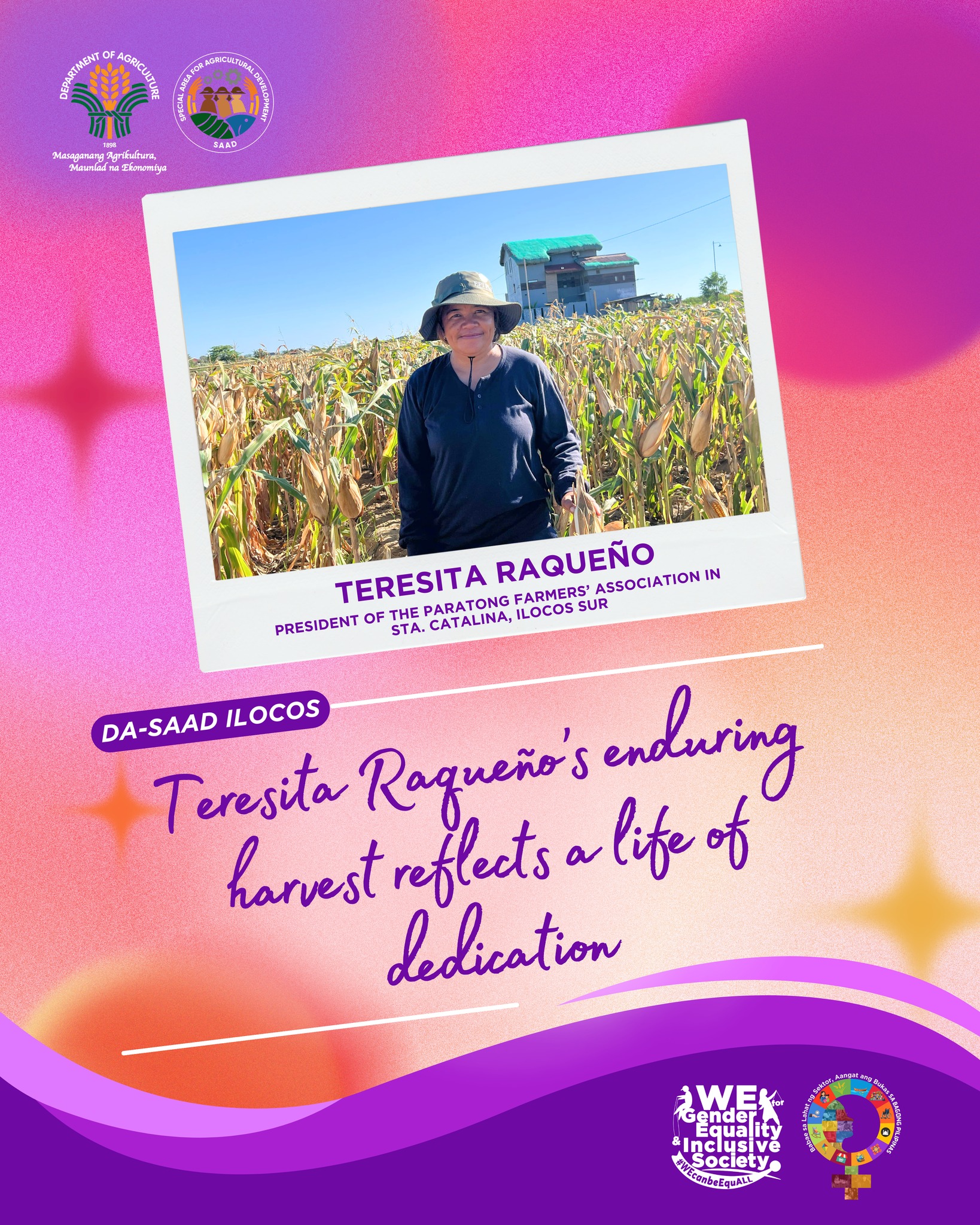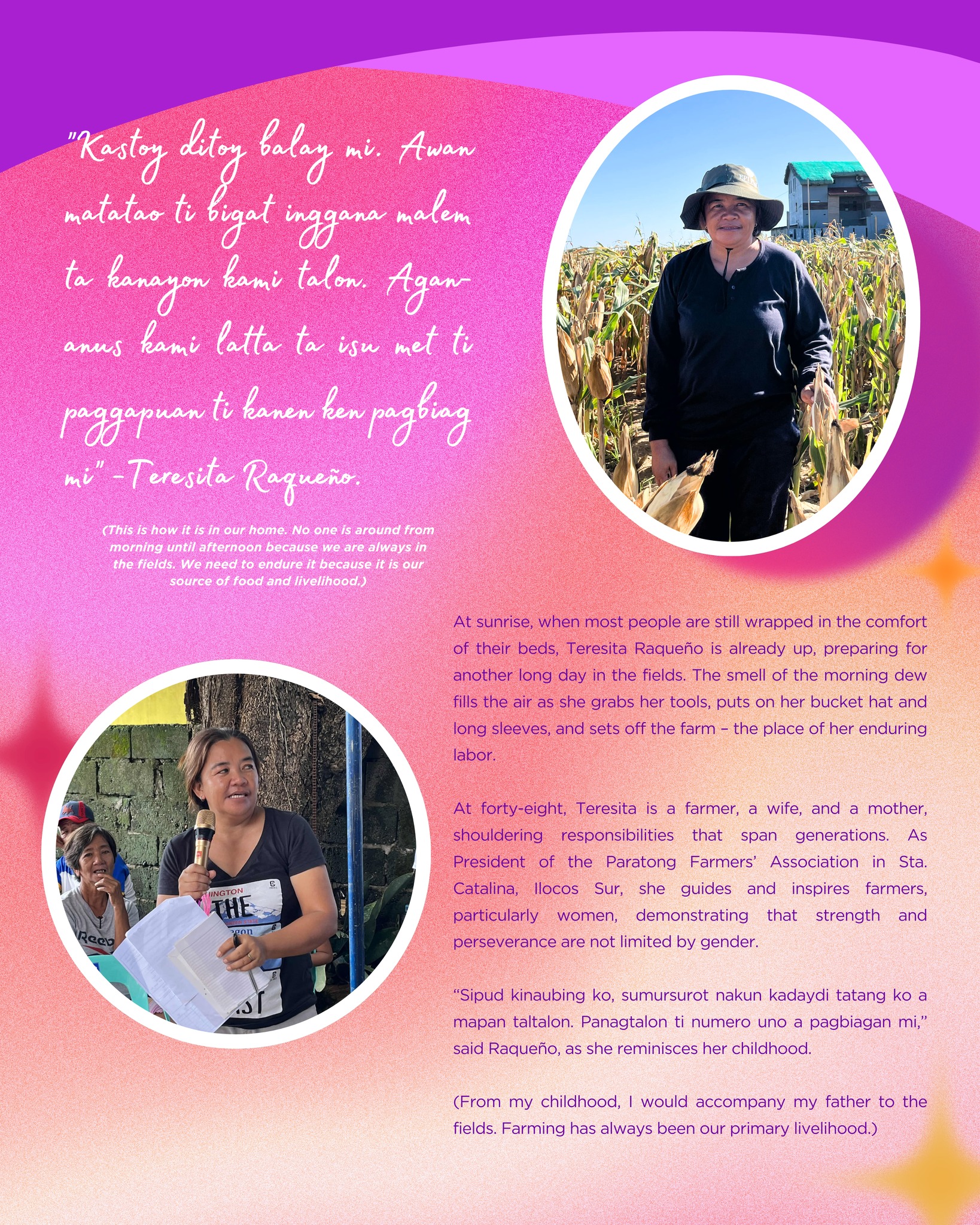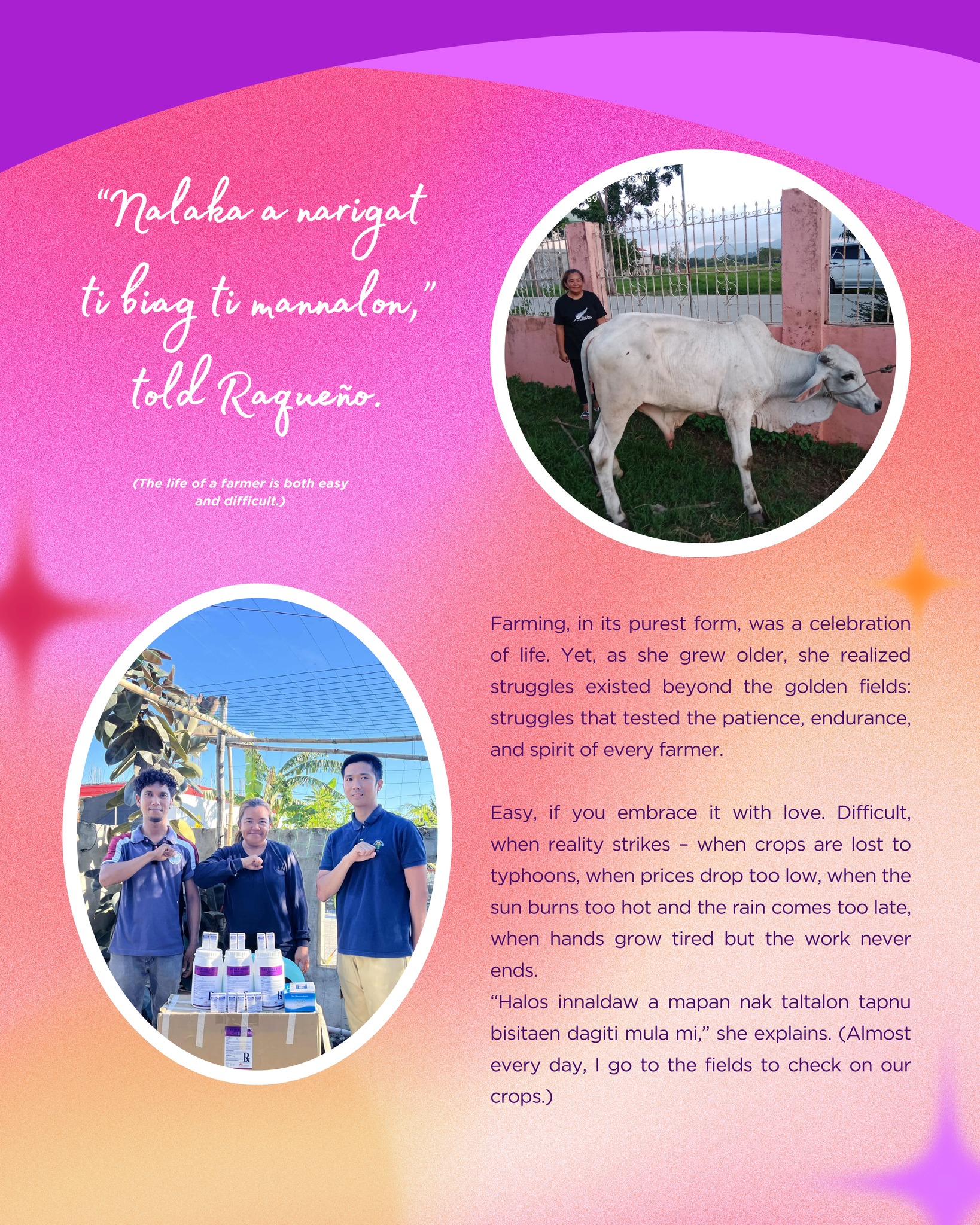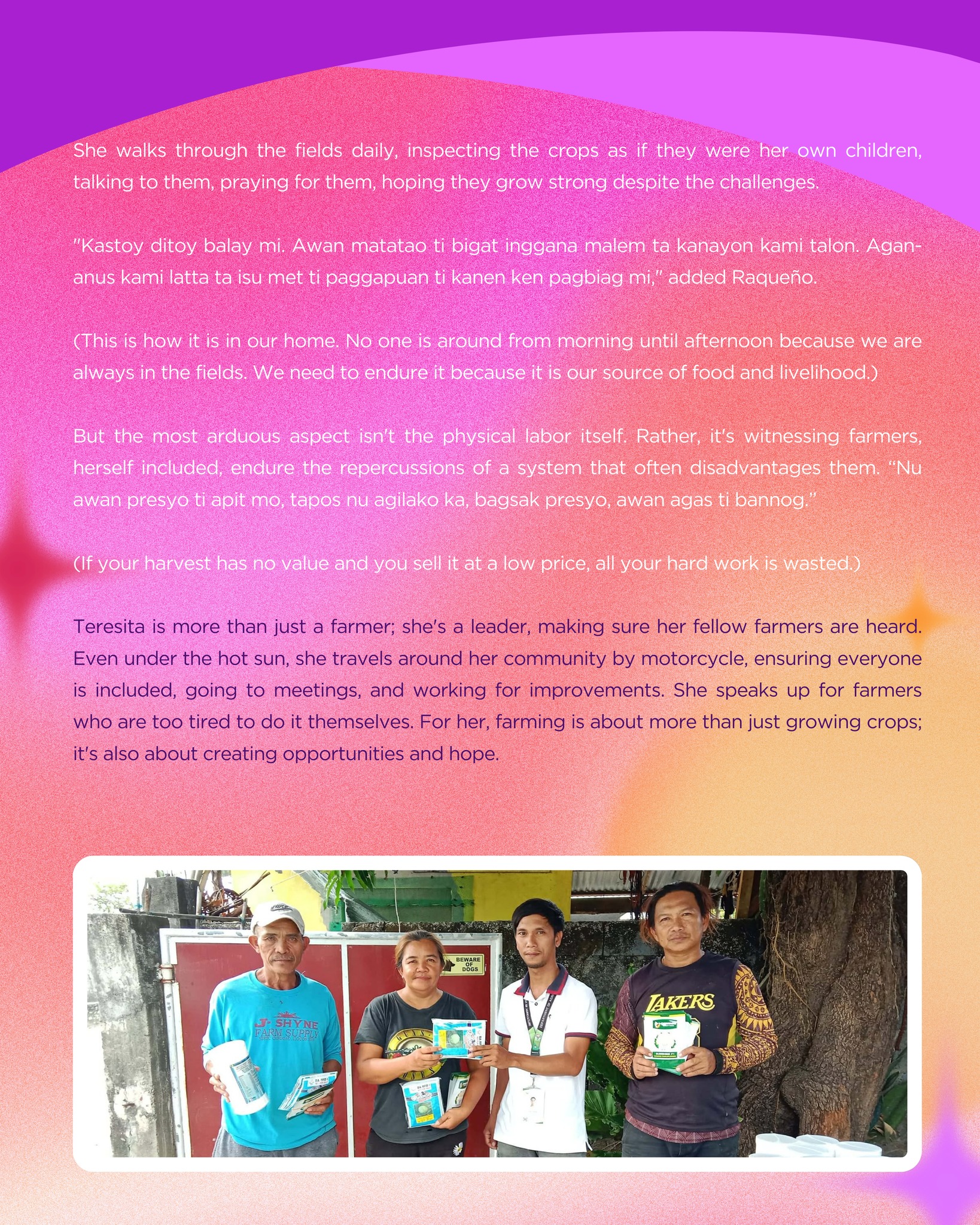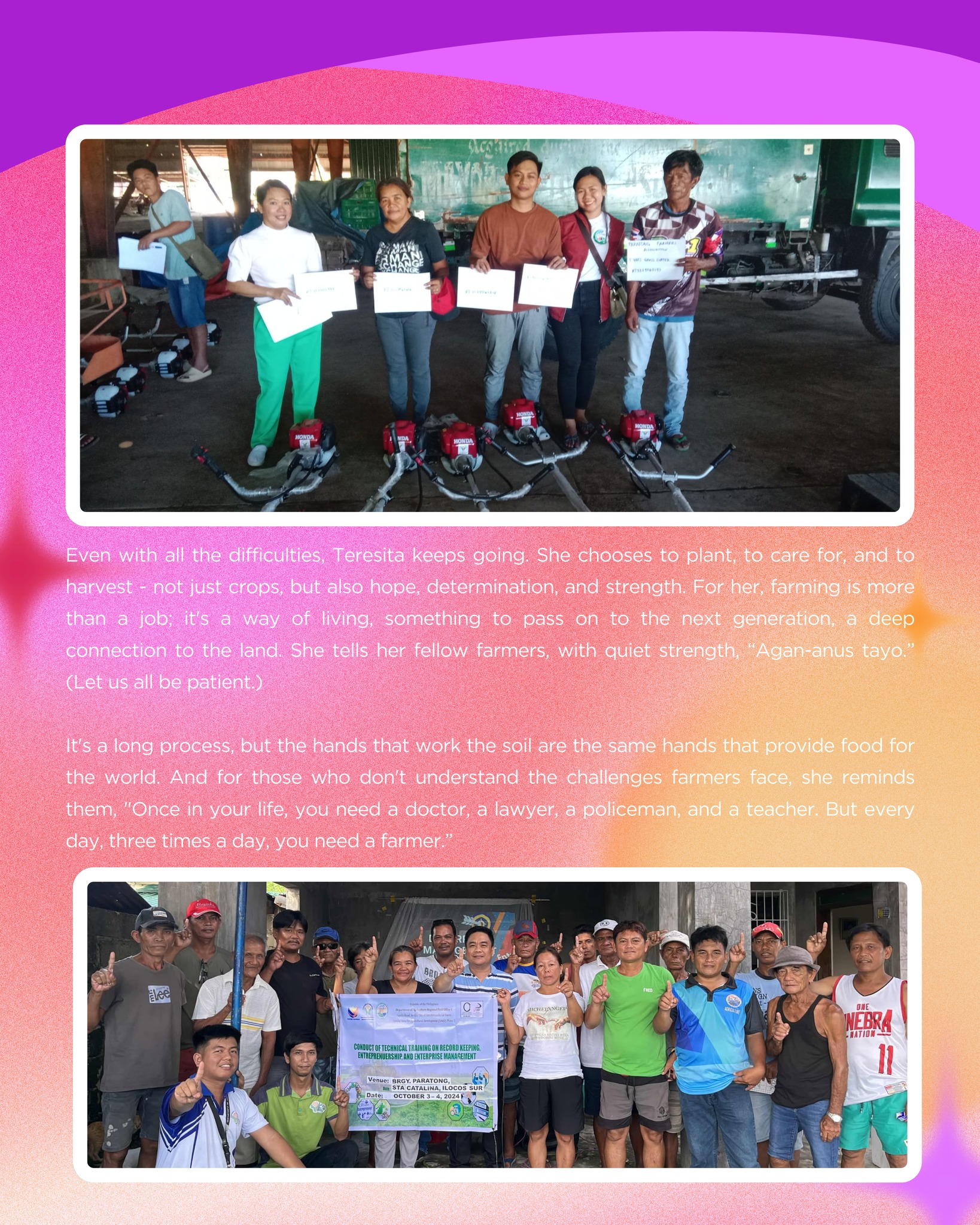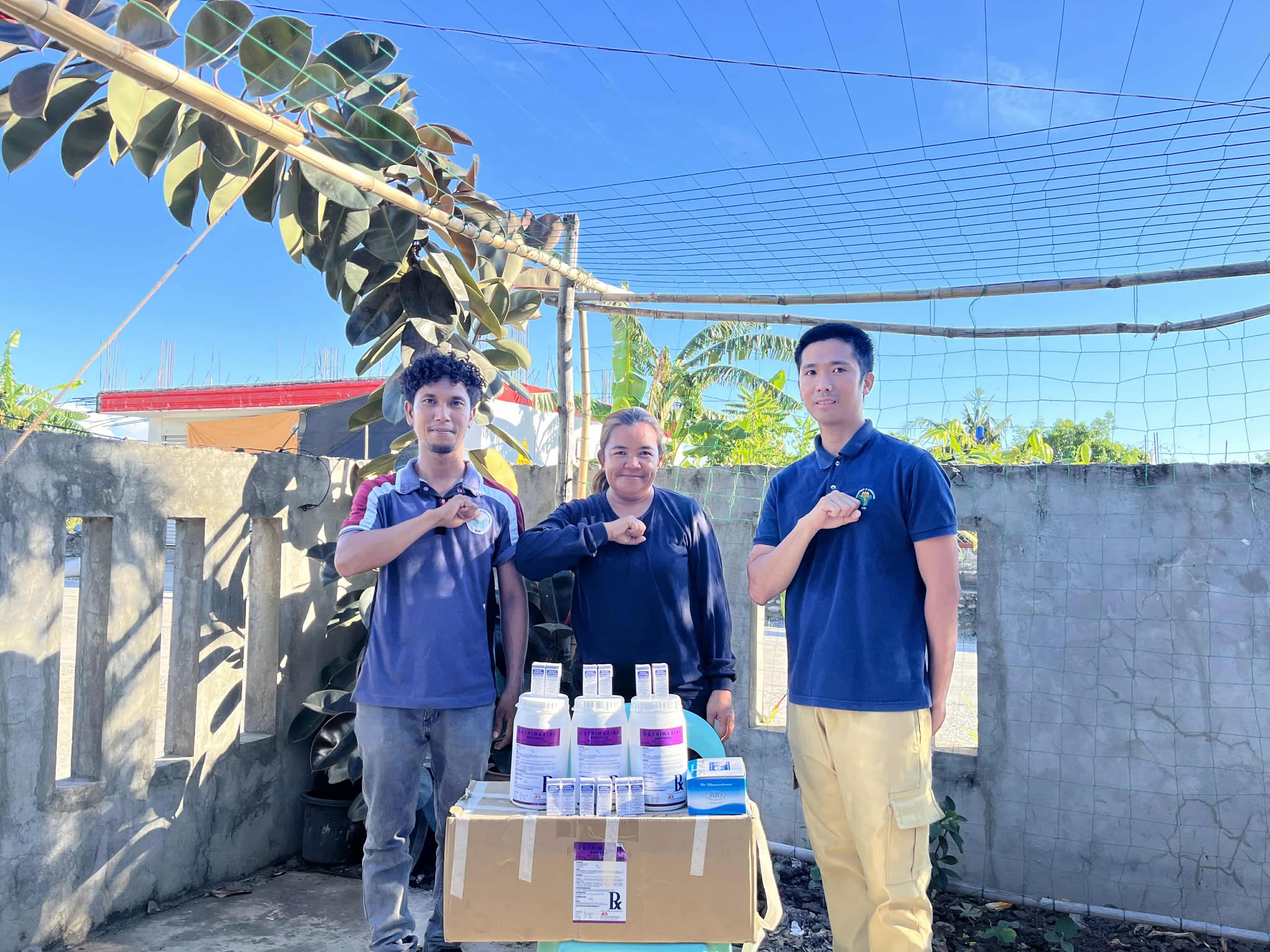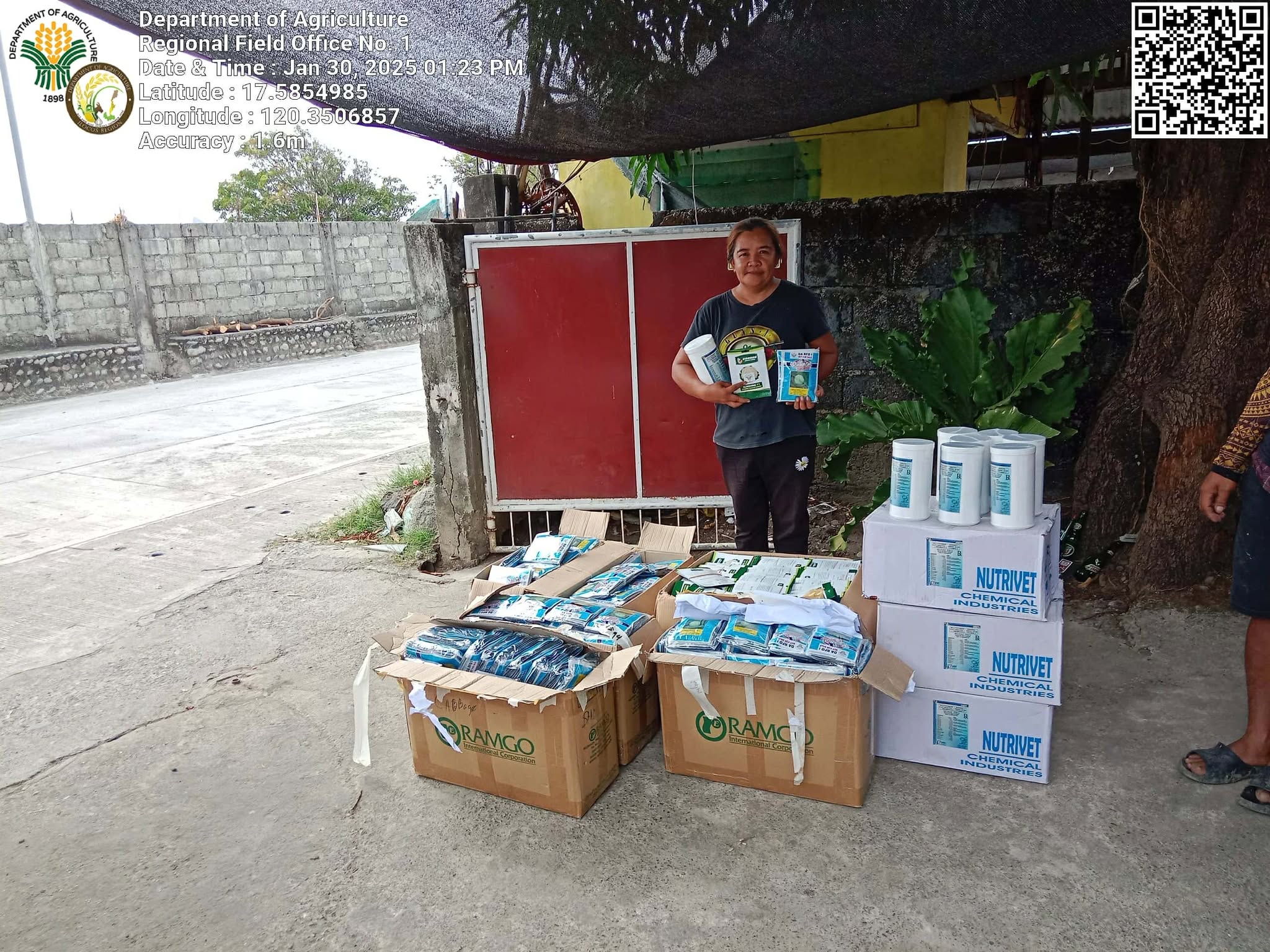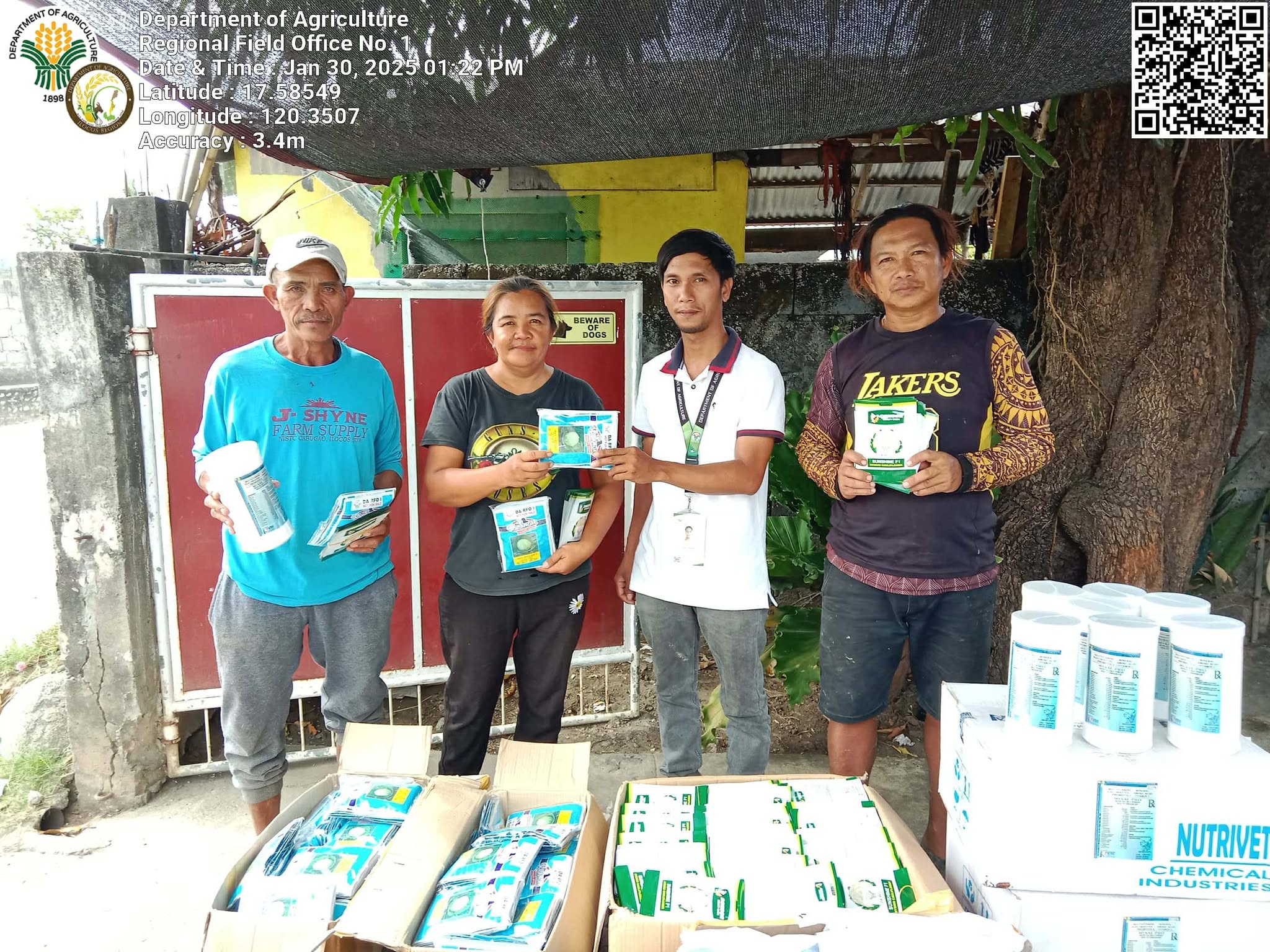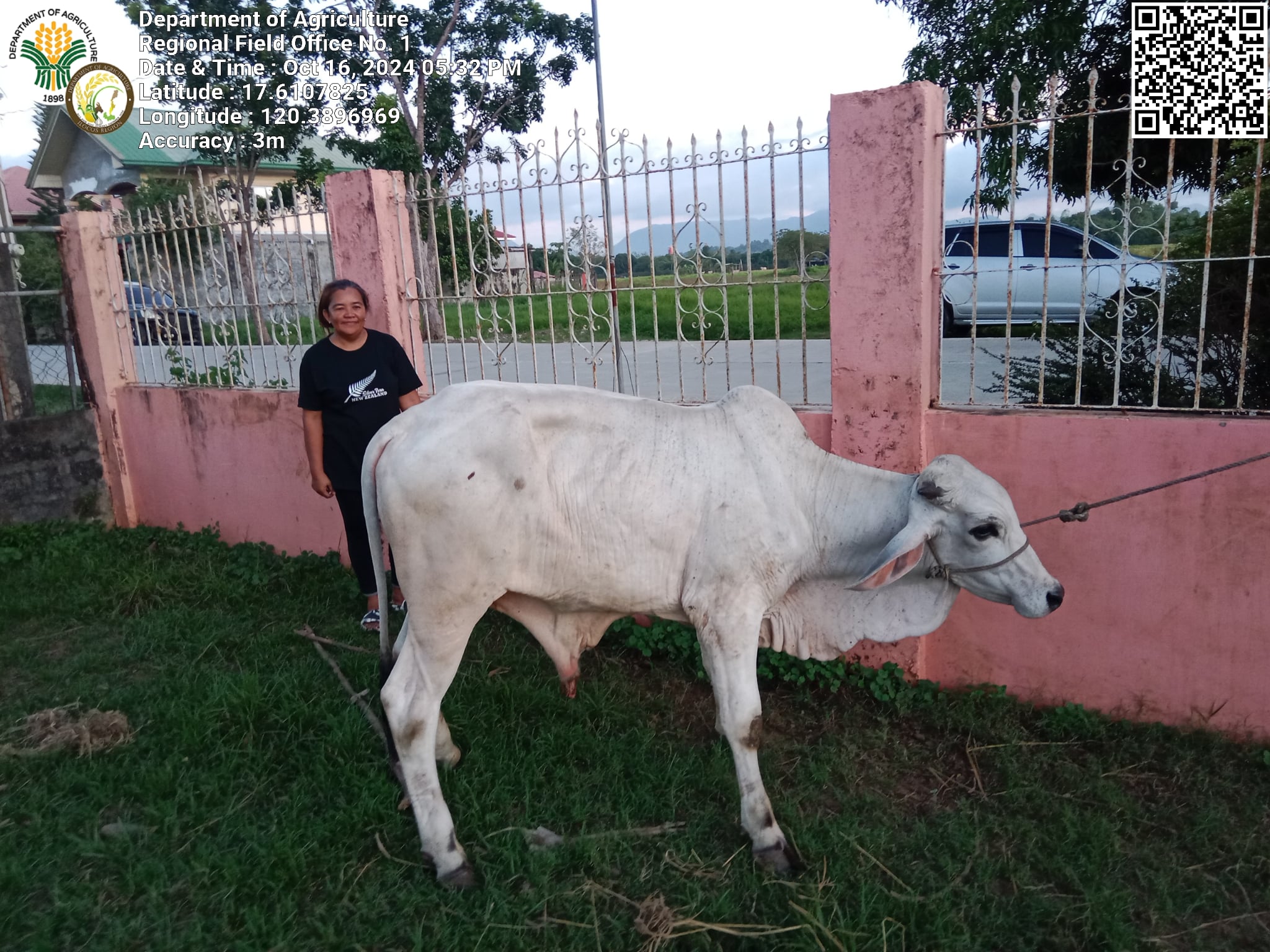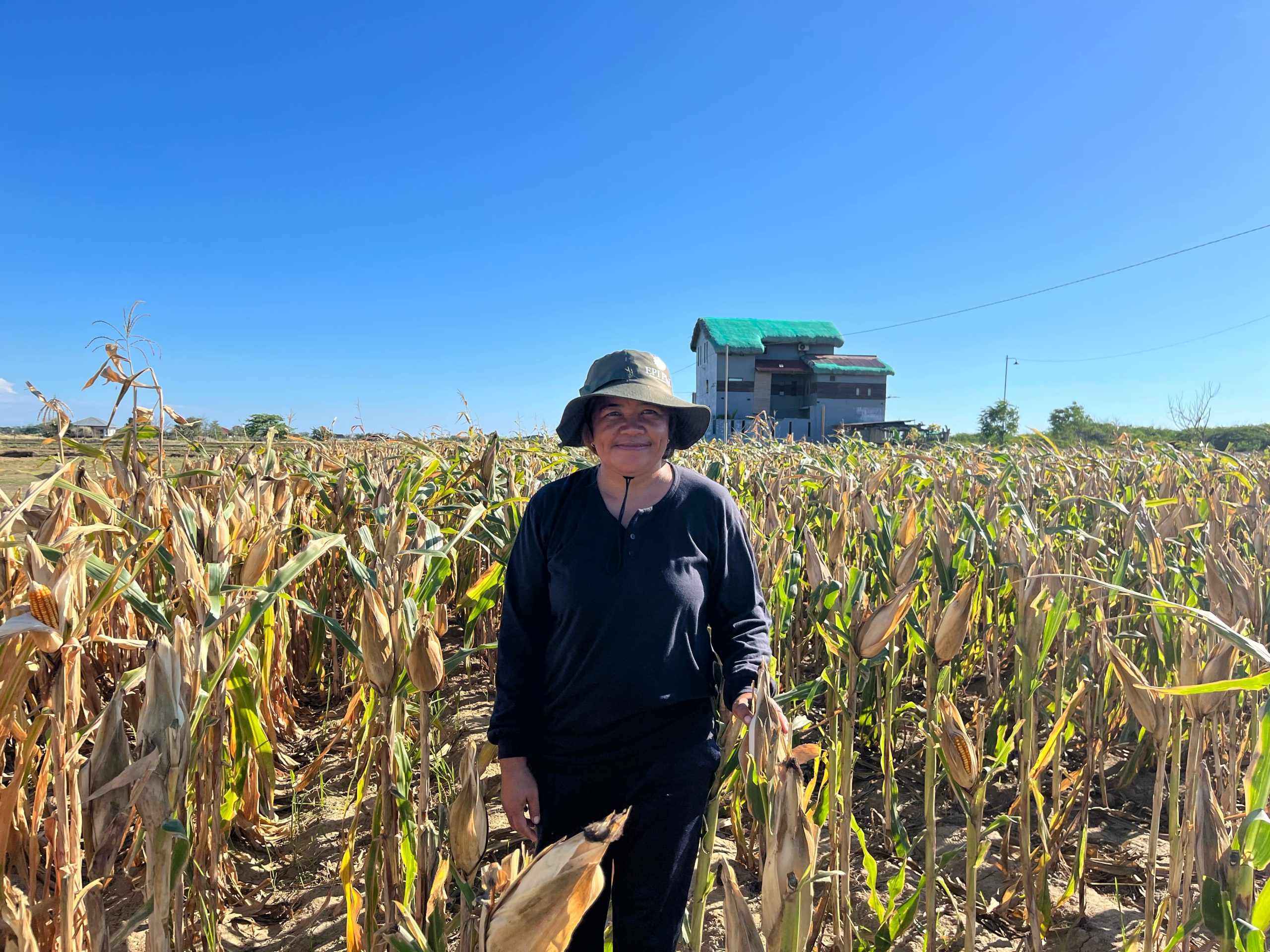At sunrise, when most people are still wrapped in the comfort of their beds, Teresita Raqueño is already up, preparing for another long day in the fields. The smell of the morning dew fills the air as she grabs her tools, puts on her bucket hat and long sleeves, and sets off the farm – the place of her enduring labor.
At forty-eight, Teresita is a farmer, a wife, and a mother, shouldering responsibilities that span generations. As President of the Paratong Farmers’ Association in Sta. Catalina, Ilocos Sur, she guides and inspires farmers, particularly women, demonstrating that strength and perseverance are not limited by gender.
“Sipud kinaubing ko, sumursurot nakun kadaydi tatang ko a mapan taltalon. Panagtalon ti numero uno a pagbiagan mi,” said Raqueño, as she reminisces her childhood.
(From my childhood, I would accompany my father to the fields. Farming has always been our primary livelihood.)
This connection to the land defined her from a young age. As a girl, she learned to plant alongside her father, her small hands and growing heart embracing the fields. She fondly recalls the joy of harvest, when rice grains gleamed like gold in the sunlight and families shared laughter in the fields.
Farming, in its purest form, was a celebration of life. Yet, as she grew older, she realized struggles existed beyond the golden fields: struggles that tested the patience, endurance, and spirit of every farmer.
“Nalaka a narigat ti biag ti mannalon,” told Raqueño. (The life of a farmer is both easy and difficult.)
Easy, if you embrace it with love. Difficult, when reality strikes – when crops are lost to typhoons, when prices drop too low, when the sun burns too hot and the rain comes too late, when hands grow tired but the work never ends.
“Halos innaldaw a mapan nak taltalon tapnu bisitaen dagiti mula mi,” she explains. (Almost every day, I go to the fields to check on our crops.)
She walks through the fields daily, inspecting the crops as if they were her own children, talking to them, praying for them, hoping they grow strong despite the challenges.
“Kastoy ditoy balay mi. Awan matatao ti bigat inggana malem ta kanayon kami talon. Agan-anus kami latta ta isu met ti paggapuan ti kanen ken pagbiag mi,” added Raqueño.
(This is how it is in our home. No one is around from morning until afternoon because we are always in the fields. We need to endure it because it is our source of food and livelihood.)
But the most arduous aspect isn’t the physical labor itself. Rather, it’s witnessing farmers, herself included, endure the repercussions of a system that often disadvantages them. “Nu awan presyo ti apit mo, tapos nu agilako ka, bagsak presyo, awan agas ti bannog.”
(If your harvest has no value and you sell it at a low price, all your hard work is wasted.)
Teresita is more than just a farmer; she’s a leader, making sure her fellow farmers are heard. Even under the hot sun, she travels around her community by motorcycle, ensuring everyone is included, going to meetings, and working for improvements. She speaks up for farmers who are too tired to do it themselves. For her, farming is about more than just growing crops; it’s also about creating opportunities and hope.
Even with all the difficulties, Teresita keeps going. She chooses to plant, to care for, and to harvest – not just crops, but also hope, determination, and strength. For her, farming is more than a job; it’s a way of living, something to pass on to the next generation, a deep connection to the land. She tells her fellow farmers, with quiet strength, “Agan-anus tayo.” (Let us all be patient.)
It’s a long process, but the hands that work the soil are the same hands that provide food for the world. And for those who don’t understand the challenges farmers face, she reminds them, “Once in your life, you need a doctor, a lawyer, a policeman, and a teacher. But every day, three times a day, you need a farmer.” ###
